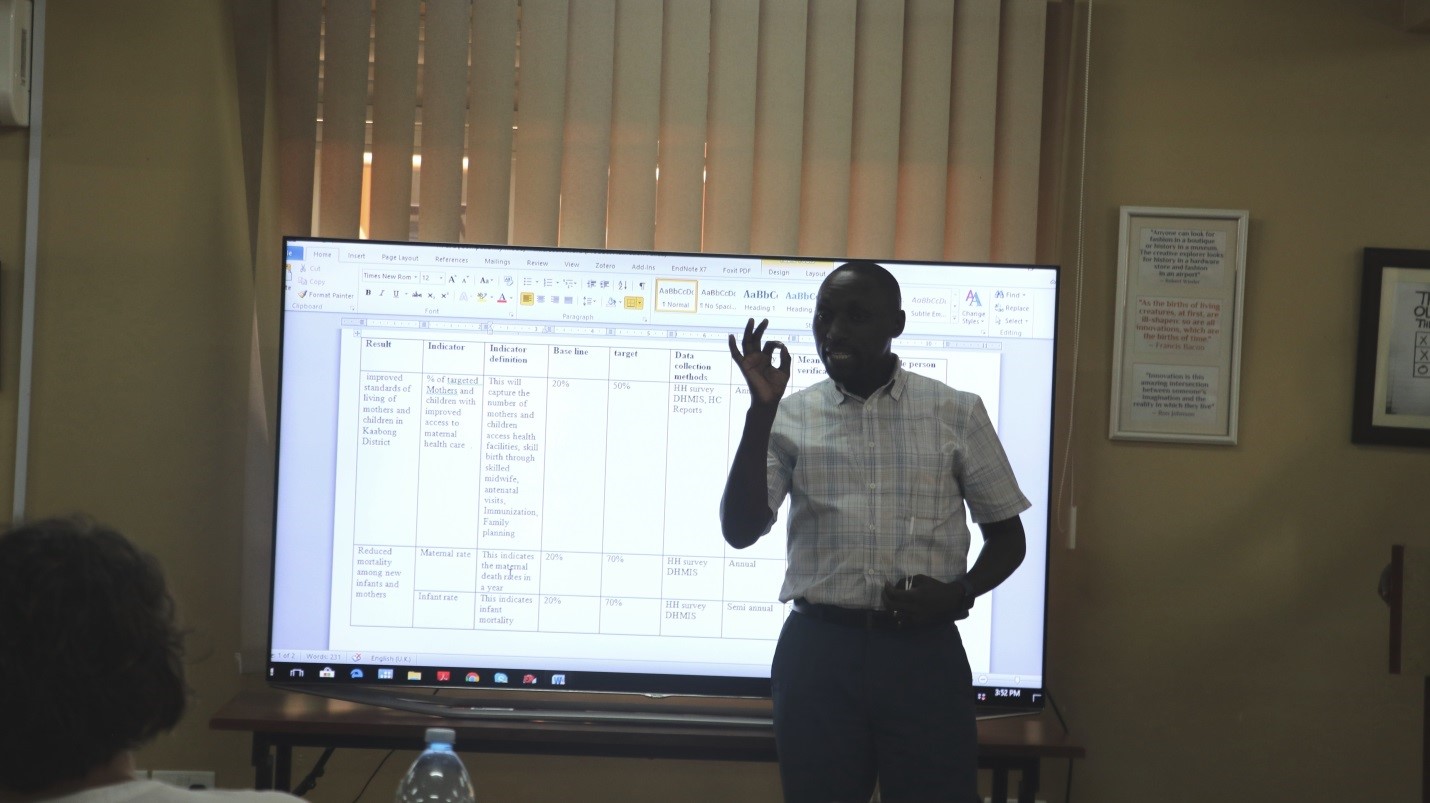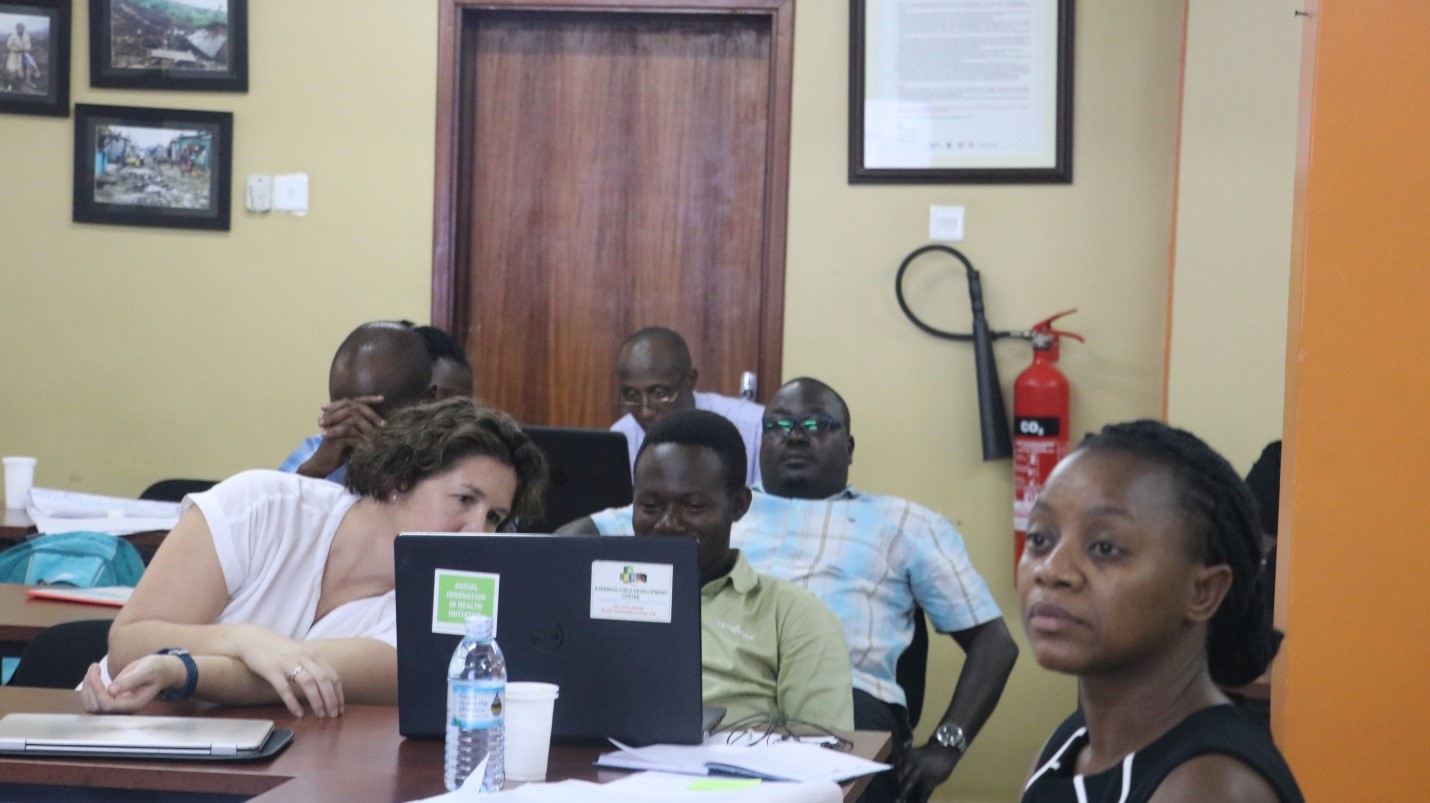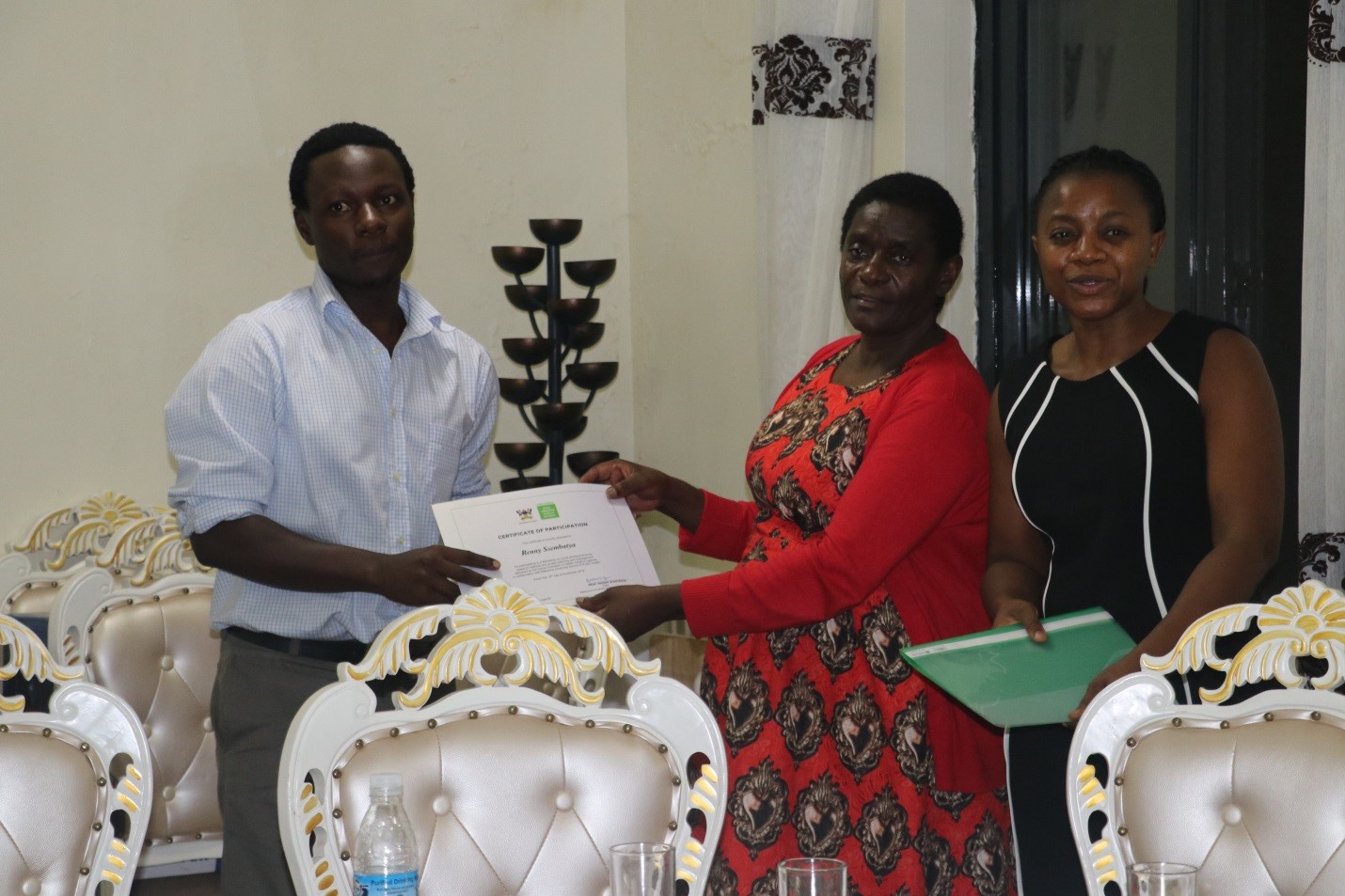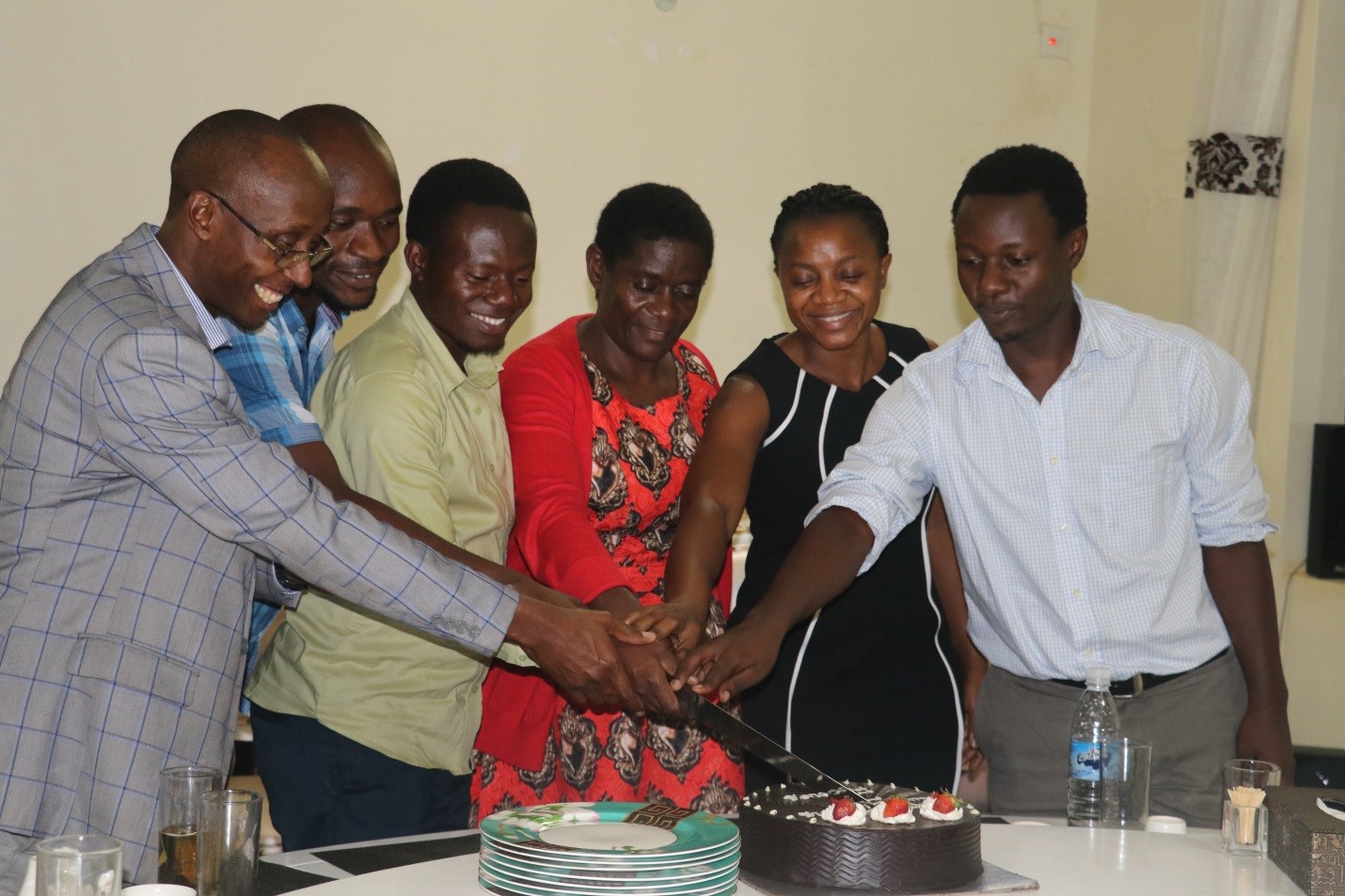The mood at the Chinese Restaurant in Kololo was calm and relaxed as the innovators dined and celebrated the completion of yet another round of training by the Social Innovation in Health Initiative (SIHI). The SIHI project is housed at Makerere University School of Public Health (MakSPH).
The grueling two-day training that left both the organizers and the participants exhausted, ended on Friday, November 16th, 2018. This training marked the end of the third round of similar training that SIHI has been offering the project beneficiaries.
Dr. Phyllis Awor, the Project Lead Person explained that these innovators were identified through an open call for solutions. From this call, multiple innovators who are improving maternal and child health were selected.
“This particular workshop was on project planning and management. We took the innovators through how to monitor and evaluate their projects. The previous workshop focused on research methods and the first one focused on Entrepreneurship skills,” Dr. Awor said. She added that the overall intention of these trainings is to make certain that innovators improve their work.
The Guest of Honour at the dinner, Ms. Jennifer Muwuliza, the Assistant Commissioner for Policy and Planning at the Ministry of Science, Technology, and Innovations, commended the participants and the project for promoting social innovations. “When we talk about innovations, people think that all innovations must be scientific. I am excited that these are social innovations designed to help the people. I only wish that this project would expand these innovations beyond health into other areas like education. They can, for example, come up with a new innovation involving new methods of teaching,” Ms. Muwuliza said.
She explained further that her ministry usually receives innovations for products. However, they are in the process of designing strategies to engage and support the public to come up with innovations outside products. “I am glad that even before we can interact and engage the public, we have something like this. Line ministries should see the importance of such innovations and include this in their policies,” the Assistant Commissioner added.
Juliet Nabirye, the Project Coordinator of SIHI explained that 10 participants from 5 different organisations were trained. “Each organization sent two representatives for the training and the organisations are spread across all regions of the country,” she said. “This training has introduced the trainees to the importance of having logical frameworks, work plans, and M&E plans. As SIHI, we are happy that the trainees appreciated the training saying it has been the missing link in the implementation of their projects because they have sometimes missed out on big funding because they didn’t have a logical model or a good work plan,” Ms Nabirye explained.
At the dinner, Ssembatya Renny, one of the trainees from an organization called “Imaging the World, Africa”, explained that this particular training equipped him with the skills of identifying implementation gaps and looking for ways in which a project can self-sustain. Talking about his innovation, Ssembatya said, “Imaging Africa is a project that integrates low - cost technology - enabled ultrasound programs into rural Health Centre IIIs where there is a lack of equipment and human resource.
David Mumbere from Kyaninga Child Development Centre (KCDC) which works with Children With Disabilities (CWDs) in Western Uganda said, “The training has enabled me to acquire new skills in finding solutions to any gaps that I identify during project implementation”.
Speaking about the importance of this training, Bruce Kisitu from Uganda Management Institute (UMI) believed that the participants had gained salient skills that would enable them to manage results-oriented projects using appropriate monitoring and evaluation expertise. “Projects in Uganda are not successful because they are not implemented within time and cost. People implement projects without knowing how to monitor change. The trainees have been equipped with skills to measure and report change so that they are able to make evidence-based decisions for their projects”, Kisitu expounded.





